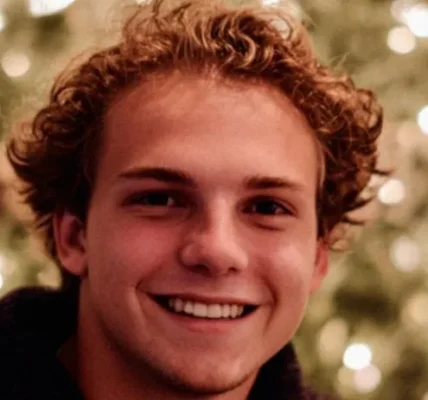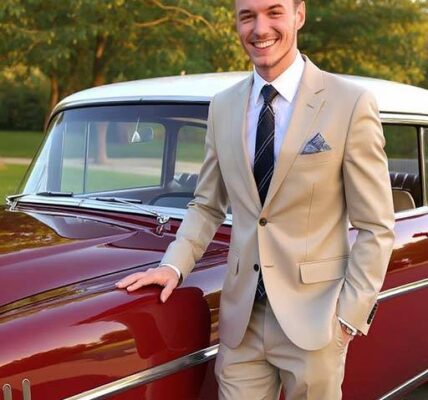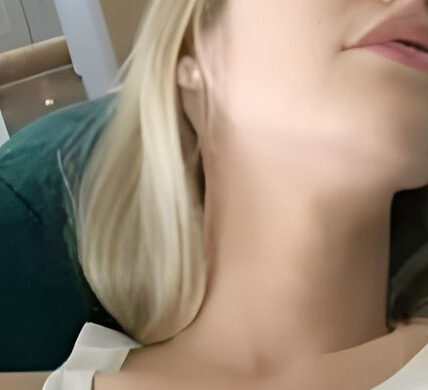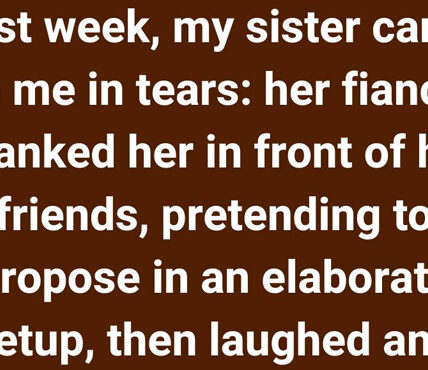It started with a wave.
My youngest, Harper, spotted the garbage truck from the window one Thursday morning and shouted like Santa himself had pulled up outside. The other two scrambled to the glass, squealing as the big green beast rolled to a stop in front of our driveway.
One of the guys—James, we’d later learn—noticed the chaos inside and gave a big, exaggerated wave. That was all it took.
The next week, I had to time breakfast around the trash schedule because “the truck” was coming. The week after that, we were out on the sidewalk, all three kids in their wagon, with homemade drawings taped to the side that said “THANK YOU GARBAGE FRIENDS.”
The guys—James, DeShawn, and Malik—didn’t just wave this time. They pulled over, hopped out, and gave the kids high-fives like they were greeting VIPs. One of them even lifted Harper up and let him “help” press the button on the truck arm.
That became our ritual.
Every Thursday morning, no matter the weather, those three made my kids feel like they mattered. They learned their names. They brought suckers once. My twins still talk about “Trash Day Candy” like it’s a real holiday.
But last Thursday, James pulled me aside.
He said, “We won’t be on this route much longer.”
And then he handed me a sealed envelope. On the back, it said:
“Only open after we’re gone.”
I didn’t know what to do with the envelope at first. It felt heavy in my hand, like it carried more than paper inside. I wanted to ask James what it meant—what “gone” really implied—but before I could say anything, he tipped his hat, climbed back into the truck, and drove off. Just like that.
Thursday came again, but instead of the familiar rumble of the green truck, there was silence. No horn honks or waves through the window. For the first time in months, my kids weren’t glued to the front door waiting for their heroes. Instead, they sat listlessly on the couch, asking questions I couldn’t answer.
“Are they sick?” Mia asked, her voice small.
“Did something happen?” Noah chimed in, clutching his favorite drawing—a stick-figure family standing beside a cartoon garbage truck.
I didn’t have answers, so I decided it was time to open the envelope.
Inside, there was a letter folded neatly alongside an old Polaroid photo. The picture showed the three men—James, DeShawn, and Malik—standing proudly by their truck, arms slung over each other’s shoulders. Their smiles were wide, genuine, the kind you don’t fake for a camera. Flipping it over, I saw scrawled handwriting: Family Forever.
The letter began simply:
“Dear Neighbors,
First off, thank you. You’ve given us far more than we ever expected. We’ve been collecting trash for years, but your family reminded us why we started doing this work in the first place—to make people’s lives easier, cleaner, better.
Now, here’s the hard part. This isn’t just about changing routes. A few weeks ago, DeShawn got some news none of us were ready for. He has cancer. Stage 4. The treatments are expensive, and while we’re trying everything we can, the company transferred us all to different routes to cut costs. They said keeping us together wasn’t ‘efficient.’ But we know the truth—they didn’t want to deal with the hassle.”
I stopped reading aloud when I heard Harper sniffle behind me. His little hands tugged at my sleeve. “Is Mr. DeShawn okay?”
I hesitated, unsure how to explain such a grown-up problem to someone so young. “He’s fighting really hard,” I said finally, pulling him close. “And his friends are helping him fight too.”
The letter continued:
“We didn’t tell you sooner because we didn’t want pity. What we wanted—what we needed—was connection. And you gave us that every single week. Those hugs, those drawings, those moments where your kids lit up like we were superheroes…they kept us going. So here’s our ask: Keep being kind. To everyone. Even if they’re just doing their job. Because sometimes, kindness is the only thing that keeps people going.”
At the bottom of the page, they’d written one last thing:
“P.S. If you’re wondering about the photo—it’s yours now. Hang onto it. Maybe someday, when things settle down, we’ll see each other again.”
For days, the house felt quieter without the laughter and excitement of Trash Day. The kids missed their friends, and honestly, so did I. There was something special about watching ordinary people turn into heroes in the eyes of children. It reminded me that everyone has value, no matter how mundane their role might seem.
Then, one Saturday morning, inspiration struck. I called the local coffee shop owner, Clara, who always seemed to know everyone in town. Within hours, she’d spread the word about DeShawn’s diagnosis and set up a fundraiser. Flyers went up around the neighborhood, social media posts circulated, and suddenly, our quiet street buzzed with activity.
People dropped off gift cards, homemade meals, and notes of encouragement. Someone organized a bake sale, and another neighbor volunteered to drive DeShawn to his appointments. When word reached the sanitation department, they sent representatives to apologize for splitting up the team and offered financial assistance for DeShawn’s treatment.
The response was overwhelming—and humbling. Strangers became allies, united by a shared desire to help. In a world that often feels divided, this act of collective kindness felt like a miracle.
A month later, we received a postcard from James. It was brief but heartfelt:
“Thank you for not forgetting us. DeShawn is holding steady, and we’re sticking together—even if it means sneaking breaks to check on each other between routes. Your community’s support means more than words can say. See you soon.”
Fast forward six months, and life returned to its rhythm—but with a twist. On a crisp fall morning, the familiar roar of the garbage truck echoed down our street. My kids bolted out of bed, shouting, “They’re back!”
Sure enough, James, DeShawn (looking thinner but smiling brighter), and Malik stood outside their truck, waving like nothing had changed. Except everything had. This time, they weren’t alone. Behind them stood neighbors carrying signs that read “Welcome Back!” and trays loaded with cookies and coffee.
DeShawn walked over to us, his steps slow but determined. He knelt down to Harper’s level and handed him a small wrapped box. Inside was a shiny silver whistle engraved with the words: Heroes Come in All Forms.
“You remind us that we’re not just garbage men,” he said softly. “To you, we’re heroes. And that makes all the difference.”
Looking back, I realize the lesson wasn’t just about gratitude or generosity. It was about seeing people—not jobs, not titles, but people. About recognizing the humanity in every interaction, no matter how small. Sometimes, a wave or a drawing or a sucker can mean more than we’ll ever know.
If you’ve enjoyed this story, please share it with others. Let’s keep spreading kindness, one gesture at a time. After all, you never know whose day—or life—you might change.




